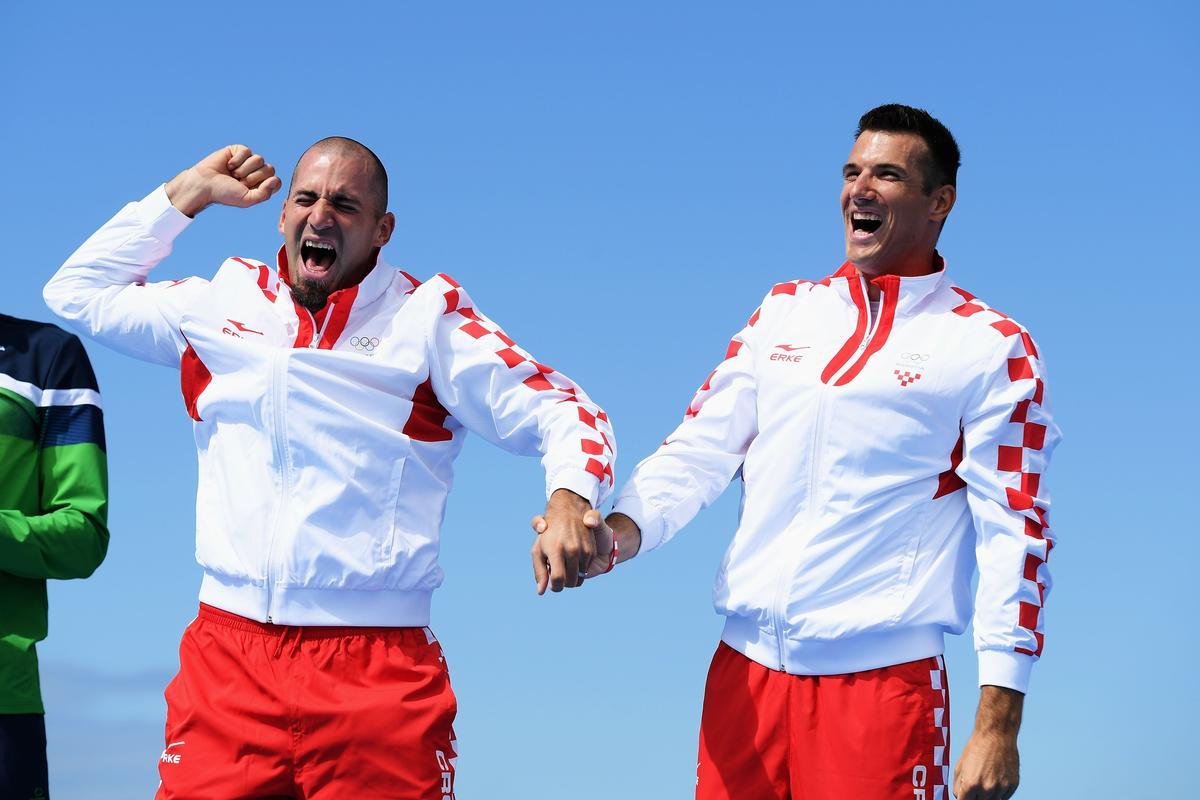Martin Sinkovic, the younger half of Croatia’s remarkable rowing brothers, has no doubt how they will feel when they take to the water in Paris in search of a third Olympic gold.
“The feeling is the same as the first time,” he told AFP in an interview.
Since 1999, when Zagreb-born Martin and Valent Sinkovic started training with the Mladost club, they have won dozens of medals as well as European and world titles.
At the 2012 London Olympics, they won the silver medal in the quadruple sculls before hitting a golden thread — first in the double sculls in Rio in 2016 and five years later in the men’s pair in Tokyo, the discipline in which they will compete in Paris.
The success, years of dedication and hard training have not dented their passion, they told AFP after a morning session at the Peruca lake in southern Croatia where the pair traditionally do their final preparations for major competitions.
“Everything we wanted to achieve we have achieved and after all the medals, I can honestly say the feeling (about the Olympics) is the same as the first time,” 34-year-old Martin said.

RIO DE JANEIRO, BRAZIL – AUGUST 11: (L-R) Martin Sinkovic of Croatia and Valent Sinkovic of Croatia celebrate winning gold medal in the Men’s Double Sculls Finals on Day 6 of the 2016 Rio Olympics at Lagoa Stadium on August 11, 2016 in Rio de Janeiro, Brazil. (Photo by Matthias Hangst/Getty Images)
| Photo Credit:
Matthias Hangst
RIO DE JANEIRO, BRAZIL – AUGUST 11: (L-R) Martin Sinkovic of Croatia and Valent Sinkovic of Croatia celebrate winning gold medal in the Men’s Double Sculls Finals on Day 6 of the 2016 Rio Olympics at Lagoa Stadium on August 11, 2016 in Rio de Janeiro, Brazil. (Photo by Matthias Hangst/Getty Images)
| Photo Credit:
Matthias Hangst
“The Olympics are special. All the athletes, all the sports together, it’s a very special feeling.
“It’s never easier and it’s never less fun than the first time. I expect a lot of tough races and a lot of fun” in Paris, he said.
His brother Valent, 15 months older, echoed that view — stressing they missed being on the water even after a short break.
“After major competitions, the first week is cool, no obligations, but then you don’t feel right and we start to train again,” Valent laughed.
‘Discipline, suffering, love’
Martin admitted they wanted to tear the boat apart 100 times after a training session if it had gone badly.
“But the next day we returned believing it will be better,” he said, describing rowing as a mixture of “discipline, suffering and love”.
The duo are hoping to continue competing until the next Olympics in Los Angeles in 2028.
But, before that, their target is gold in Paris.

TOKYO, JAPAN – JULY 29: Gold medalists Martin Sinkovic and Valent Sinkovic of Team Croatia pose with their medals during the medal ceremony for the Men’s Pair Final A on day six of the Tokyo 2020 Olympic Games at Sea Forest Waterway on July 29, 2021 in Tokyo, Japan. (Photo by Naomi Baker/Getty Images)
| Photo Credit:
Naomi Baker
TOKYO, JAPAN – JULY 29: Gold medalists Martin Sinkovic and Valent Sinkovic of Team Croatia pose with their medals during the medal ceremony for the Men’s Pair Final A on day six of the Tokyo 2020 Olympic Games at Sea Forest Waterway on July 29, 2021 in Tokyo, Japan. (Photo by Naomi Baker/Getty Images)
| Photo Credit:
Naomi Baker
“We are always expecting to be in the battle for the gold medal and I expect it again now. I hope we can achieve it,” Martin said.
Valent pointed out that these would be their fourth Olympic Games but the “first one at which we are not the favourites, if you look at the results from this year.
“It’s a bit strange and different feeling, but if we do our best we can fight for the gold.”
The start of the year was a bit slower.
But at last month’s World Cup in Poland, the final test for the Olympics, they won silver in the men’s pair, a discipline that they had switched to after competing in sculls.
“We narrowly missed winning against the Swiss team who are the current world champions, so it showed us we are on the right path,” Valent, a father of two children, said.
“We are in a good position. We can’t wait for the Olympics to start to see where we are.”
The pair credit long-time coach Nikola Bralic as key to their achievements, while parents and wives also provide an anchor in a highly stressful sporting environment.
But the bond of being brothers has also helped cement their enduring success.
“Without Bralic we certainly would not be what we are, we would not be on the top for so long,” Martin said.
“We certainly wouldn’t last that long if we were not brothers,” said Valent.
“We’re connected, it’s easier to forgive a brother and you can understand him better than someone else.”

